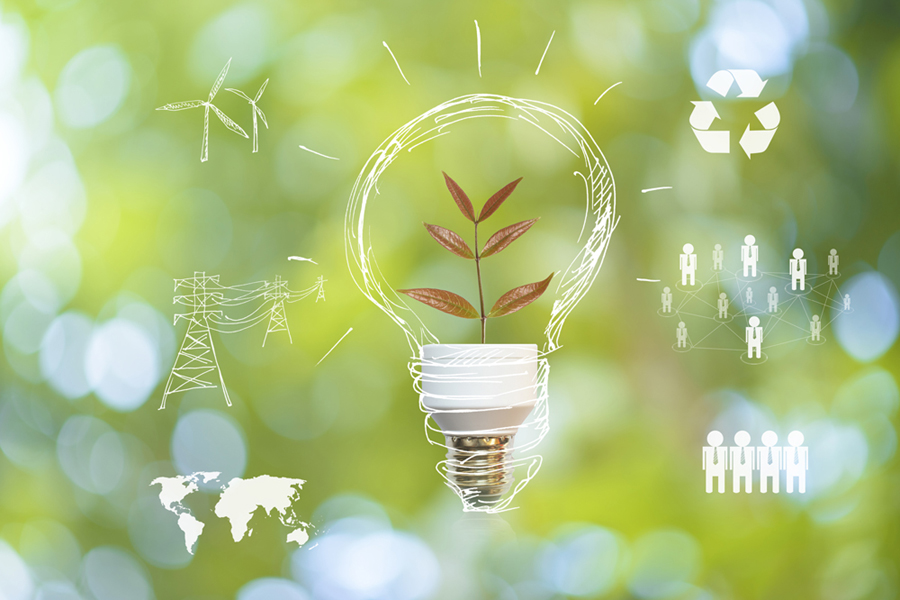Sustainable career pathways: Green jobs and future of work in Bangladesh

Published :
Updated :

As global awareness about climate change and environmental sustainability grows, the concept of "green jobs" has gained significant traction. These jobs not only contribute to environmental protection but also promote economic growth and social equity. In Bangladesh, a country vulnerable to the adverse effects of climate change, the development of green jobs is crucial.
Globally, organisations are increasingly committing to sustainability initiatives aligned with the United Nations Sustainable Development Goals (SDGs) and Environmental, Social, and Governance (ESG). Companies like Unilever, Nestlé, and Microsoft have set ambitious targets for reducing their carbon footprints, improving resource efficiency, and promoting social equity. These commitments often involve collaborating with international frameworks such as the UN Global Compact, which guides businesses in adopting sustainable and socially responsible policies. Additionally, there is a noticeable shift from traditional Corporate Social Responsibility (CSR) to more comprehensive ESG frameworks, focusing on long-term sustainability and ethical governance. Let's explore roles in different sectors that are getting traction globally.
Ready-made garment (RMG) sector: The RMG sector plays a crucial role in the country's economy.
Sustainability manager: They oversee the implementation of sustainable practices in production processes, ensuring compliance with environmental regulations, and promoting energy efficiency.
Eco-design specialist: They develop environmentally friendly designs and materials for garments, reducing waste and improving the lifecycle of products.
Sustainable supply chain analyst: The monitor and optimise supply chains to ensure sustainable sourcing of raw materials and ethical labour practices.
Consumer packaged goods (CPG) sector: The CPG sector in Bangladesh is vital, catering to the daily needs of large population.
Packaging engineer: They design eco-friendly packaging solutions that reduce waste and improve recyclability.
Sustainable product developer: They create products that use renewable resources and have a minimal environmental impact.
Corporate social responsibility (CSR) coordinator: They develop and manage CSR initiatives that focus on sustainability and community engagement.
Leather manufacturing sector: Leather manufacturing in Bangladesh has been a significant industry. It has faced various challenges and undergone transformations over the years.
Environmental compliance officer: They ensure that leather production processes meet environmental standards and regulations.
Waste management coordinator: They implement systems to manage and reduce waste generated during leather processing.
Water management specialist: They develop techniques to minimise water usage and manage wastewater in leather tanneries.
Other manufacturing sectors: Bangladesh has other manufacturing sectors such as textile and jute industries, pharmaceuticals, shipbuilding, light engineering, etc.
Energy efficiency consultant: They advise manufacturing companies on ways to reduce energy consumption and improve efficiency.
Green marketing specialist: They promote products and services that meet environmental standards and appeal to eco-conscious consumers.
Circular economy strategist: They develop business models that focus on reusing, recycling, and regenerating materials to create a closed-loop system.
Sustainability focused roles can also help leaders at the top of the organisations to make impactful decisions. Let's look at how these roles can help any organisations:
Data-driven decisions: Sustainability roles often involve gathering and analysing data on environmental impact, resource usage, and waste management. This data can help leaders make informed decisions about where to invest in sustainability initiatives and how to optimise operations.
Regulatory compliance: Sustainability professionals ensure that companies comply with environmental regulations, helping to avoid legal issues and potential fines. This compliance can also enhance the company's reputation and marketability.
Cost savings: By identifying opportunities for energy efficiency and waste reduction, sustainability roles can contribute to significant cost savings. These savings can then be reinvested into further sustainability projects or other areas of the business.
Brand reputation: Implementing sustainable practices can enhance a company's brand image and attract eco-conscious consumers. This can lead to increased sales and customer loyalty who are getting more aware and attracted about eco-friendly products.
Long-term strategy: Sustainability roles help integrate environmental considerations into the company's long-term strategy. This ensures that the business is prepared for future challenges related to resource scarcity, climate change, and changing consumer preferences.
The development of green jobs in Bangladesh represents a significant opportunity to address environmental challenges while promoting economic growth and social equity. By focusing on key sectors such as renewable energy, waste management, sustainable agriculture, and green construction, and by equipping the workforce with the necessary skills through targeted education and training programmes, Bangladesh can pave the way for a sustainable and prosperous future. This transition not only benefits the environment but also ensures that future generations have access to meaningful and fulfilling global careers. Implementing sustainability roles in major manufacturing sectors can further drive this transformation, helping leaders make informed decisions that align with environmental goals and long term business success.
maishazaahir@yahoo.com


 For all latest news, follow The Financial Express Google News channel.
For all latest news, follow The Financial Express Google News channel.